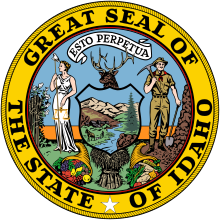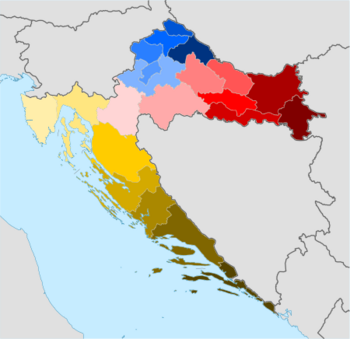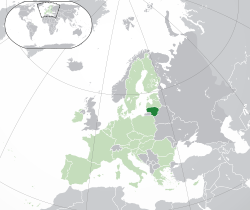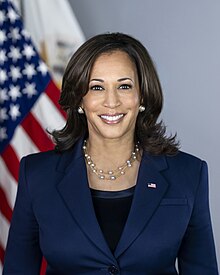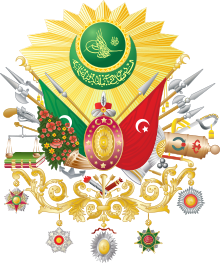Portal:Politics
| Main | Topics and categories | Tasks and projects |
The Politics portal
Politics (from Ancient Greek πολιτικά (politiká) 'affairs of the cities') is the set of activities that are associated with making decisions in groups, or other forms of power relations among individuals, such as the distribution of resources or status. The branch of social science that studies politics and government is referred to as political science.
It may be used positively in the context of a "political solution" which is compromising and non-violent, or descriptively as "the art or science of government", but also often carries a negative connotation. The concept has been defined in various ways, and different approaches have fundamentally differing views on whether it should be used extensively or in a limited way, empirically or normatively, and on whether conflict or co-operation is more essential to it.
A variety of methods are deployed in politics, which include promoting one's own political views among people, negotiation with other political subjects, making laws, and exercising internal and external force, including warfare against adversaries. Politics is exercised on a wide range of social levels, from clans and tribes of traditional societies, through modern local governments, companies and institutions up to sovereign states, to the international level.
In modern nation states, people often form political parties to represent their ideas. Members of a party often agree to take the same position on many issues and agree to support the same changes to law and the same leaders. An election is usually a competition between different parties.
A political system is a framework which defines acceptable political methods within a society. The history of political thought can be traced back to early antiquity, with seminal works such as Plato's Republic, Aristotle's Politics, Confucius's political manuscripts and Chanakya's Arthashastra. (Full article...)
Selected article
The European Union is an international organization of 27 European states, established in 1992. It originates from the Coal and Steel Community, founded in 1951 by Germany, France, Italy and the Benelux countries. However, the French-German politician Robert Schuman presented his proposal of a united Europe, known as the Schuman declaration, already in 1950, which is considered to be the beginning of what is now the European Union. The Union has many activities, the most important being a common single market, consisting of a customs union, a single currency, a Common Agricultural Policy and a Common Fisheries Policy.
Featured picture
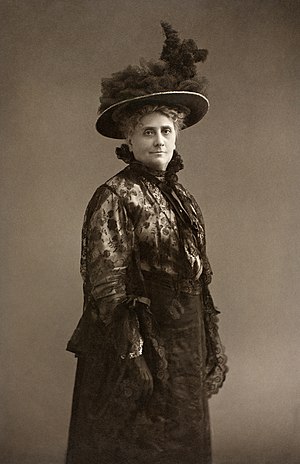
Gina Krog (20 June 1847 – 14 April 1916) was a Norwegian suffragist, teacher, liberal politician, writer and editor. She played a central role in the Norwegian women's movement from the 1880s until her death, notably as a leading campaigner for women's right to vote. In 1884, Krog co-founded the Norwegian Association for Women's Rights with liberal MP Hagbart Berner. Over the next two decades, Krog co-founded the Women's Voting Association, the National Association for Women's Suffrage, and the Norwegian National Women's Council, spearheading the presentation of women's suffrage proposals to the Storting (the Norwegian parliament). She was an early member of the Liberal Party and served as a deputy member of its national board.
Selected quote
Selected biography
Margaret Thatcher (1925–2013) was a British politician and the first female Prime Minister of the United Kingdom, a position she held from 1979 to 1990. She was a member of the Conservative Party and the figurehead of a political ideology known as Thatcherism. Even before coming to power she was nicknamed The Iron Lady in Soviet propaganda, an appellation which stuck. The changes she set in motion between coming to power and 1985 were profound, and altered much of the economic, cultural and commercial landscape of Britain and, by example, the world as a whole. Along the way she also aimed to roll back the welfare state, or "nanny state", as she termed it. Her popularity finally declined when she replaced the unpopular local government rates tax with the even less popular Community Charge. At the same time the Conservative Party began to split over her sceptical approach to Economic and Monetary Union of the European Union. Her leadership was challenged from within and she was forced to resign in 1990, her loss at least partly due to inadequate advice and campaigning.
Did you know (auto-generated) -

- ... that before becoming the mayor of Medan, Indonesia, Agus Salim Rangkuti acted in movies and oversaw a real-life political prison camp?
- ... that Dave Barrow quit municipal politics to work at his family's insurance brokerage before becoming mayor of Richmond Hill?
- ... that Presidential Ballots, 1836–1892 was reviewed by Richard P. McCormick, who wrote that it "should stimulate a host of studies in the little-explored field of American political behavior"?
- ... that Denpasar mayor I Gusti Ngurah Jaya Negara became active in politics after he was laid off from a bank due to the Asian financial crisis?
- ... that Angel Joy Chavis Rocker, a guidance counselor with no political experience, was the first black woman to run for President of the United States as a Republican?
- ... that artist Tove Jansson based the children's book character Snufkin on a political philosopher whom she had dated?
More did you know...
- ...that the phrase "lipstick on a pig" may have its origins in the 18th-century expression "A hog in armour is still but a hog"?
- ...that the Pirate Party of the United States was formed after a 2006 raid by the Swedish police on the servers of The Pirate Bay, a popular file sharing website?
- ...that Andrey Kirillovich Razumovsky, at the time Ambassador of the Russian Empire to the Austrian Empire, commissioned three string quartets from Beethoven?
- ...that the National Assembly of Azerbaijan was the first secular republican parliament in the Muslim world?
- ...that in world-system theory, sociologists debate whether two world-systems have ever existed during the same period?
- ...that former Republican California State Senator Becky Morgan served on the Board of Trustees of both her alma maters, Stanford University and Cornell University?
- ...that the Brown Dog affair, an Edwardian era vivisection controversy, led to massive riots?
- ...that the 2013 United States federal budget may impose a 23% cut on the defense budget due to the Budget Control Act of 2011, according to Secretary of Defense Leon Panetta?
In this month
- June 28, 2004 - Canadian federal elections occur; the Liberal party loses its absolute majority.
News and Current events
- August 11: 4 local government areas in New South Wales, Australia locked down after COVID-19 case
- August 11: Australia: AstraZeneca vaccine access expanded by Victorian government
- August 1: Australia: Victorian lockdown lifted
- July 29: Tunisia's president dismisses prime minister, suspends parliament
- July 25: Australia: Wikinews interviews Reg Kidd, mayor of the City of Orange, about COVID-19 lockdown and local government
- July 23: South Australia enters week-long lockdown to contain COVID-19 Delta variant spread
- July 21: Technological University Dublin senior lecturer Dr Lorcan Sirr speaks to Wikinews on housing market in Ireland
- July 21: Three rural councils in New South Wales, Australia enter 7-day lockdown
- July 21: Australia: Victoria lockdown extended by a week with 85 active cases recorded
- July 15: California governor signs new state budget, eligible Californians to get stimulus payments
Topics and categories
General images
Related portals
Associated Wikimedia
The following Wikimedia Foundation sister projects provide more on this subject:
-
Commons
Free media repository -
Wikibooks
Free textbooks and manuals -
Wikidata
Free knowledge base -
Wikinews
Free-content news -
Wikiquote
Collection of quotations -
Wikisource
Free-content library -
Wikiversity
Free learning tools -
Wiktionary
Dictionary and thesaurus



